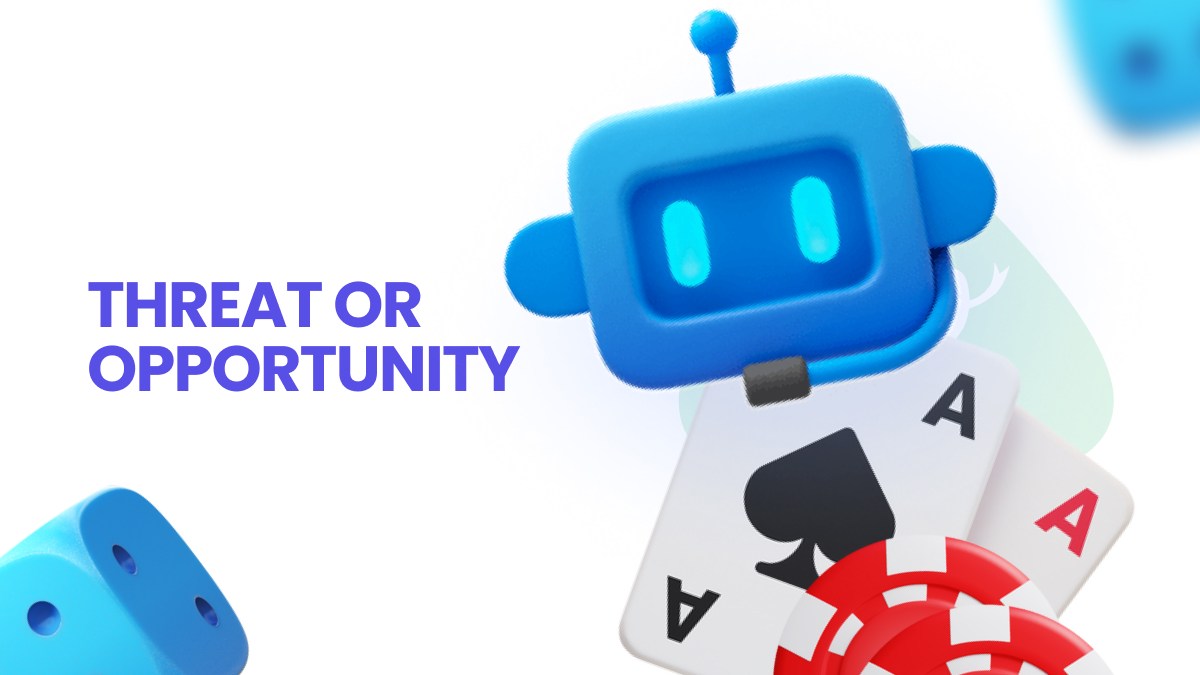AI in the Gambling Industry
Artificial Intelligence (AI) is a network of algorithms that can learn, make decisions, and solve problems. This technology has applications in many fields, including healthcare, industry, and communications.
The gambling industry is also adopting AI, as new online casinos and game developers leverage AI to handle tasks previously done by people with increased speed and efficiency.
Using AI in Bonuses, Recommendations, and Personalized Casino Experiences
Machine learning, a common form of AI, relies on data analysis and model building. With AI, various tasks can be automated, large amounts of data can be analyzed, images can be recognized, and languages can be translated. Online casinos use AI to improve the gambling experience and support players and providers in multiple ways. AI-driven machine learning allows casinos to offer bonuses tailored to each player, encouraging them to return even after claiming the initial welcome offers.
By analyzing user data, AI knows when a player typically logs in, what games they play, and which bonuses they prefer. Based on this, specific bonuses can be offered, like free spins for customers who often play slots. AI can also determine an ideal time to send newsletters to make it easier for players to access their accounts.
AI also suggests games that align with the player’s comfort level in terms of risk and game type. For example, recommendations might feature high-volatility slots or live casino tables with a low minimum bet.
AI’s Role in Game Development and Analysis
Casinos aim to provide appealing and engaging content for players, and game developers play a crucial role in this. AI helps casinos select and strategically place games and categories on their websites. For developers, AI supports the creation of new gambling games.
Features like wilds, free spins, and bonus games can be designed based on player interest, while difficulty levels can be adjusted to appeal to a broad audience. AI analysis can even fine-tune theoretical return percentages to attract more players or improve game profitability.
AI also speeds up game testing and quality control. Automated systems detect bugs and errors faster than human testers, saving game developers time and resources.
AI and Chatbots in Customer Support
Customers are essential for any online casino. With AI, even smaller casinos can provide 24/7 support through chatbots when live agents aren’t available. AI-powered chatbots answer player questions instantly, guiding them on using the site, assisting with deposits and withdrawals, and troubleshooting technical issues.
Players get quick answers regardless of their time zone, while automation frees up resources for other needs, like reviewing withdrawal requests.
Along with customer support, AI gathers valuable information on player questions, issues, and preferences. This data helps casinos understand player needs and improve their services accordingly.
Fighting Fraud with AI
AI can act like a deputy, safeguarding player security and ensuring compliance with casino rules. Complex algorithms are deployed to detect, identify, and track suspicious activities, fraud attempts, and scams, protecting both the gaming site and the player. AI can detect the use of multiple accounts, simultaneous sessions, and other signs of dishonest actions.
AI monitors game actions and transactions in real time, flagging any unusual activity or transfers to the casino’s security team. This quick response helps prevent fraud and minimize financial losses.
By analyzing player behaviour, AI can identify risk patterns, such as high betting amounts, continuous play, or playing beyond limits. This allows at-risk players to be spotted early, so casinos can offer responsible gaming tools to help players keep their activity under control.
The Future of AI in the Gambling Sector
While some see AI as a threat, there’s no strong evidence in the gambling sector that AI will cause job losses or reduce online casino quality. More complex or personal issues still require the help of a customer support representative instead of a chatbot.
Roles in game development, software engineering, marketing, data analytics, risk analysis, finance, and payments will still be needed. However, in the future, understanding and managing AI may become more important than traditional skills alone.
A typical game coder designs game concepts, builds the engine, codes the logic, creates graphics and sound effects, and tests the games using conventional programming languages. The game is a ready-made package, offering the same experience for all players.
A coder specializing in AI, on the other hand, uses machine learning, neural networks, and other AI technologies to design features that can be integrated into games. This results in games where AI-driven characters act intelligently and unpredictably. Soon, you may find yourself playing poker against an AI-based poker bot instead of a live dealer!








